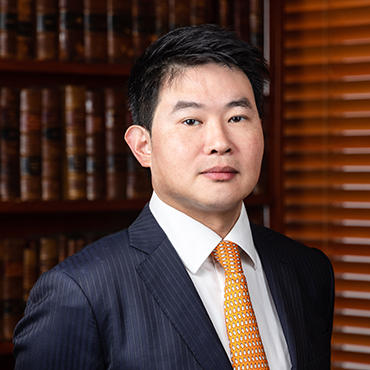Lai Chee Ying v Commissioner of Police [2022] 4 HKLRD 582, [2022] HKCFI 2688 (Philip Dykes SC, Steven Kwan, Albert NB Wong)
Philip Dykes SC leading Steven Kwan, Albert NB Wong, and Samantha Lau, represented the plaintiff/applicant in Lai Chee Ying v Commissioner of Police [2022] 4 HKLRD 582, [2022] HKCFI 2688.
Upon a search of X’s residence (on the strength of a warrant), the police seized two iPhones among other things. X claimed that the seized materials might contain journalistic materials (JM), and a protocol (the Protocol) had been put in place by order of the Court to determine X’s claims including those in respect of JM. The seized materials produced under the Protocol, including the digital contents of the two iPhones (the Digital Contents), had been sealed pursuant to the Court’s orders. Subsequently, based on the latest evidence available as part of the ongoing criminal investigation, and pursuant to s.2 of Sch.1 to the Implementation Rules for Article 43 of the Law of the People’s Republic of China on Safeguarding National Security in the Hong Kong Special Administrative Region (NSL), the Commissioner of Police obtained a search warrant issued by a designated Magistrate which authorised the search and seizure of the Digital Contents including such contents subject to JM claims, while it expressly provided that the Digital Contents might only be unsealed by the Court’s further directions. In the present applications, the Commissioner applied for directions that the Digital Contents be made available to the police (save the contents on which legal professional privilege was claimed), while X sought leave to apply for judicial review to challenge the validity of the search warrant. Section 2(2) of Sch.1 to the Implementation Rules provides that the designated magistrate “may issue a warrant … to enter and search any place if … there is reasonable ground for suspecting that any specified evidence is in the place”. X argued that as a matter of construction, “specified evidence” did not cover JM, while the legislature designed protections and strict procedures to allow law enforcement bodies access to JM in Pt.XII of the Interpretation and General Clauses Ordinance (Cap.1) (the IGCO), such mechanisms were absent from the Implementation Rules; therefore, relying on the principle of legality, the Implementation Rules could not have intended to derogate from the existing protections of press freedom without saying so in clear terms.
Held, refusing leave to apply for judicial review, granting directions that the Digital Contents including those subject to JM claims be made available to the police and ordering that the Protocol insofar as it related to JM claims be dispensed with, that:
- (1) X’s construction, in effect, contended that Pt.XII of the IGCO was the only lawful regime to protect JM. This could not be the case since it would lead to the objectionable, absurd and anomalous consequences of depriving the Court of its jurisdiction over JM under the NSL and the Implementation Rules (A v Commissioner of Police[2021] 3 HKLRD 300 applied). (See paras.10(1), (3), (4).)
- (2) The NSL and the Implementation Rules operated separately and additionally to the IGCO regime, in that the wording of NSL 43 intended to confer on the police additional powers in handling cases concerning offences under the NSL. The police were entitled to invoke the Implementation Rules if they most conveniently suited its purpose. Further, by way of the expressio unius principle, where Sch.6 to the Implementation Rules only imported the definition of JM from s.82 of the IGCO, but not the entire IGCO regime, the drafters must have had the IGCO regime in mind but chose only to introduce the definition. For the same reason, the principle of legality could not assist X since the present case was not a scenario where general statutory language abrogated or curtailed fundamental rights went unnoticed by the drafters (Philip KH Wong, Kennedy YH Wong & Co v Commissioner of ICAC [2008] 3 HKLRD 565, A v Commissioner of ICAC (2012) 15 HKCFAR 362, Next Digital Ltd v Commissioner of Police (No 2) [2021] 5 HKC 411 applied). (See paras.13(1)-(3), 15(2)(a)-(b), 25(3).)
- (3) Even in the context of Pt.XII of the IGCO and considering the common law position, press freedom did not equate blanket prohibition against the seizure, production or disclosure of JM. The Court was required to carry out a balancing exercise between press freedom and the public interest of criminal investigation. The balancing exercise in the present context came with the word “may” in s.2(2) of Sch.1 to the Implementation Rules. In that regard, JM was only a relevant consideration in the exercise of the Court’s discretion, but not a paramount consideration, to be duly taken into account in the issuance of a search warrant. The Magistrate was entitled to and capable of considering the relevance of potential implications to the freedom of expression and freedom of the press as a result of search and seizure of JM in an application made under s.2 of Sch.1, even though there was no express mechanism akin to Pt.XII of the IGCO, and that the IGCO had no application to the Implementation Rules. In any event, there was no evidence that the Magistrate did not carry out the balancing exercise, particularly evident by the wording of the search warrant, which acknowledged that the Digital Contents were subject to claims of JM (A v Commissioner of Police [2021] 3 HKLRD 300 applied; British Steel Corp v Granada Television Ltd [1981] AC 1096, So Wing Keung v Sing Tao Ltd [2005] 2 HKLRD 11 considered). (See paras.10(1)-(2), 11, 14(8), 15(1), 21, 22(1)-(7).)
- (4) As a matter of statutory interpretation, “specified evidence” could not be construed to exclude JM. “Specified evidence” was defined in wide and embracing terms in s.1 of Sch.1 to the Implementation Rules to cover “anything” that was or contained or was likely to contain evidence of an offence endangering national security. In the present context, the wide ambit of the natural and ordinary meaning of “specified evidence” was consistent with the intention of NSL 43 and the Implementation Rules which was to provide the law enforcement authorities with wider investigating measures, as well as the legislative intention of the NSL to effectively prevent, suppress and impose punishment for any act or activity endangering national security (Town Planning Board v Society for the Protection of the Harbour Ltd (2004) 7 HKCFAR 1, HKSAR v Ma Chun Man [2020] HKCFI 3132, Lai Chee Ying v Secretary for Security [2021] 4 HKLRD 695 applied). (See paras.14(2)-(5).)
- (5) The search warrant remained valid and open for execution. The directions sought by the Commissioner were to give effect to the search warrant and should be granted accordingly. (See paras.28-30.)
[The above is excerpted from the headnote to the report in HKLRD.]




